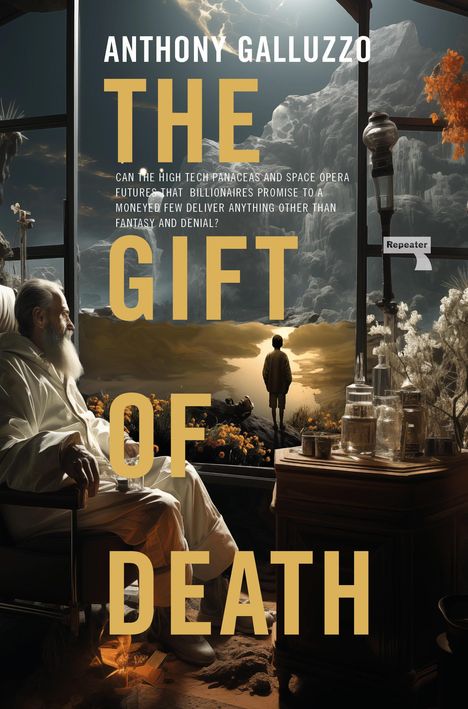Anthony Galluzzo: Galluzzo, A: Gift of Death, Flexibler Einband
Galluzzo, A: Gift of Death
Lassen Sie sich über unseren eCourier benachrichtigen, falls das Produkt bestellt werden kann.
- Verlag:
- Watkins Media, 03/2026
- Einband:
- Flexibler Einband
- ISBN-13:
- 9781915672575
- Gewicht:
- 367 g
- Erscheinungstermin:
- 17.3.2026
Ähnliche Artikel
Klappentext
Billionaires and tech moguls are promising us a high-tech, accelerated future of space exploration, transhumanism and immortality. But can this actually save our world from political and climate collapse?
As our world teeters on the edge of a number of crises both social and environmental, billionaires and tech moguls are putting their faith in technological fixes and espousing post-human fantasies of immortality and planetary exploration as a way to save humanity. But can the high-tech panaceas and space opera futures they promise to a moneyed few deliver anything other than fantasy and denial?
In The Gift of Death , Anthony Galluzzo fights back against these high-tech dystopian futures of transhumanism, accelerationism, and long-termism, arguing instead for a degrowth politics that shuns unlimited expansion and the new interplanetary frontier, and re-roots humans in the limited, finite and natural world in which we exist. If we are to build a better world for all, he argues, it will be done here on Earth, not in the spaceship of a billionaire.
In doing so, Galluzzo unearths a hidden history of degrowth politics in a wide range of cultural works from the 1970s to the present day, exploring novels such as Riddley Walker, The Dispossessed, Ecotopia , and The Trouble on Triton alongside films like Solaris and Penda's Fen. Drawing on neo-Luddite and neo-romantic thought, including eco-feminism and alternative technology, death acceptance and eco-phenomenology, he argues that any meaningful response to the perils of our age requires an acceptance of our earthly limits and a reorientation of our politics toward a romantic, low-tech and low impact engagement with our own creatureliness.





